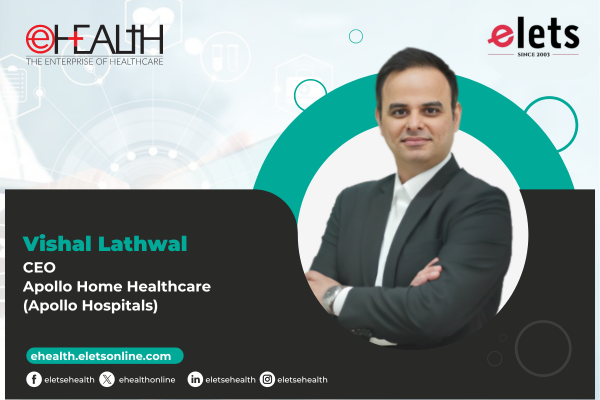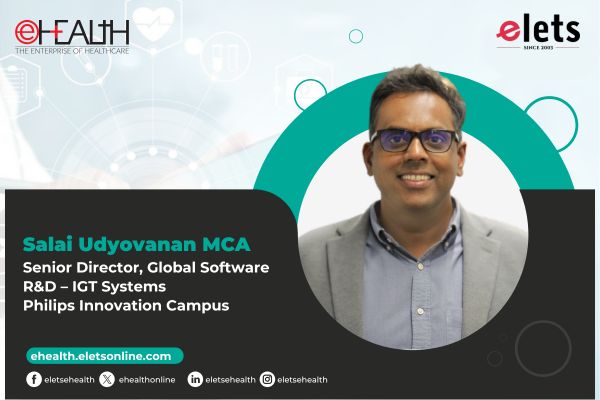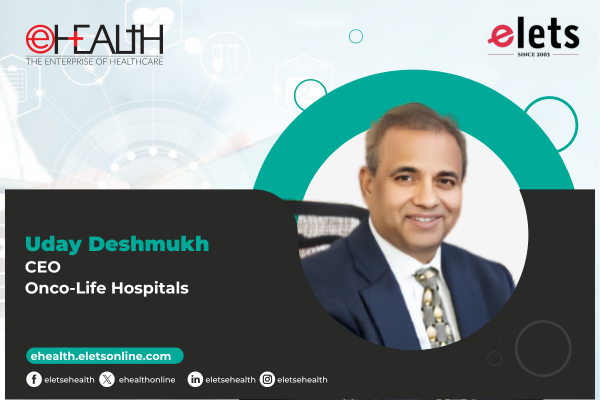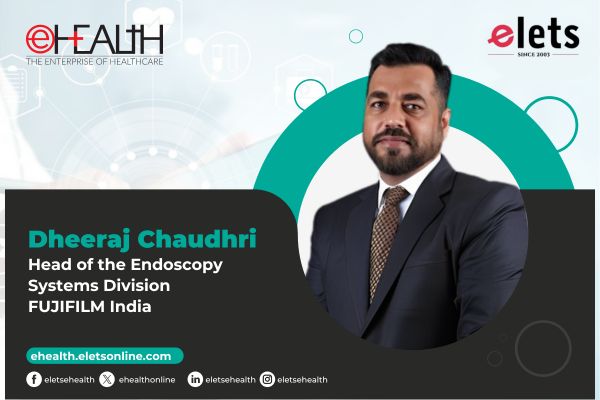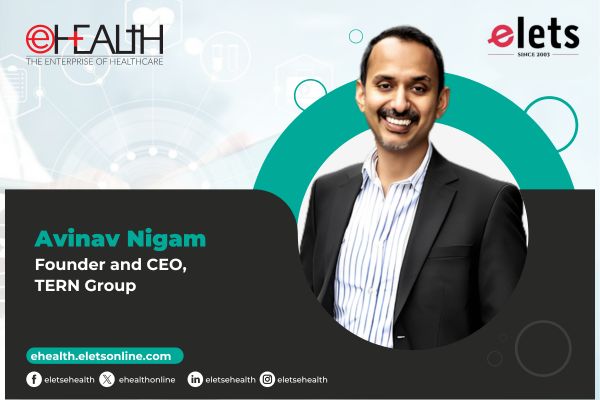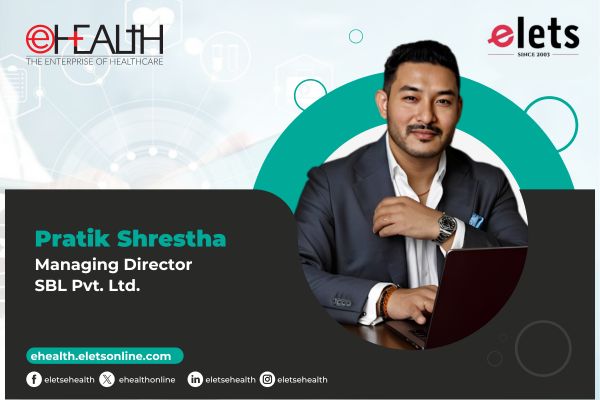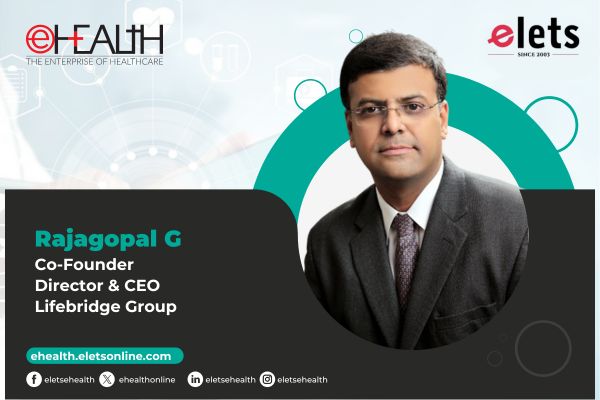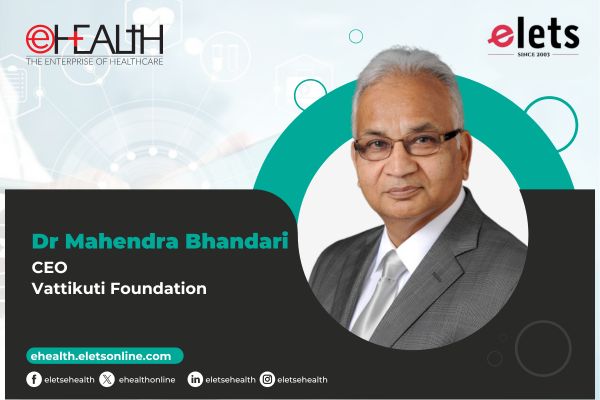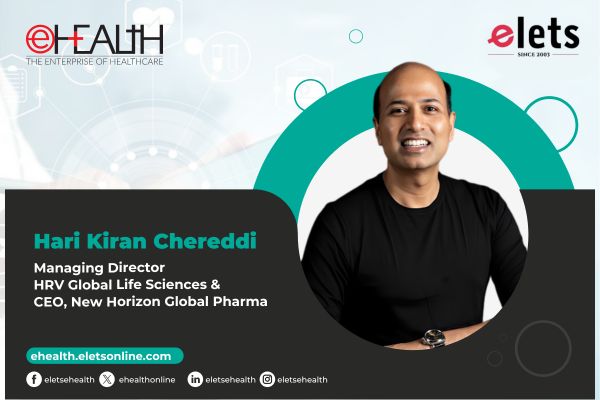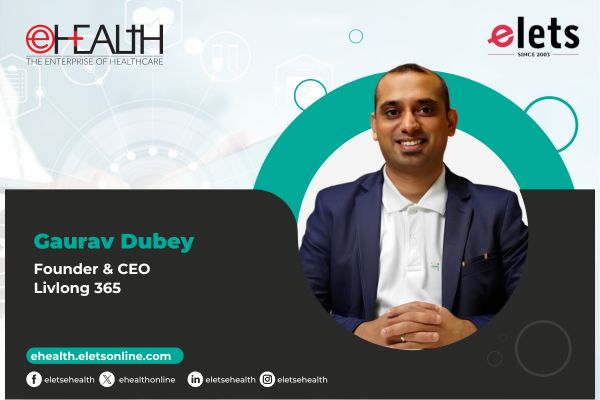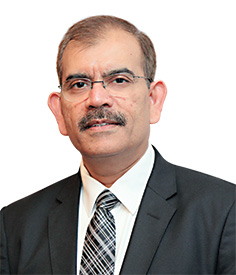
The healthcare sector has been a bit conservative from the perspective of IT usage, but realised that IT can really add value to the business, says Manoj Kumar, utive Vice President and Chief utive Officer, Ricoh India Ltd
India stands for promises and opportunities, and has leapfrogged to become a formidable power in the global economic scenario. Transforming healthcare dynamics of the country will support the advancement of the economy which has already grown to one of the fastest growing economies in the world.

Yet today, India finds itself lagging behind peers on healthcare infrastructure and healthcare outcomes. The Indian healthcare sector faces shortage of infrastructure, with 0.7 beds per 1,000 persons as compared to other large developing economies (Brazil with 2.6 beds, and China with 2.2 beds per 1,000 persons). There is dearth of human resources for healthcare, with 0.6 doctors and 1.3 nurses per 1,000 persons. India’s overall healthcare expenditure is only 4.2 percent of its GDP compared to an average of 8.5 percent globally, and lower than other emerging countries such as Brazil (9.0%), China (4.6%) and Russia (5.4%). Further, the government investment is even lower at 1.3 percent of the GDP, and most of it is either on manpower cost, running health programs or building infrastructure.

IT has become a business enabler for multiple industries such as banking, manufacturing, telecom, logistics, and aviation. The healthcare sector has so far been bit conservative from the perspective of IT usage, but has started realising that IT can really add value to the business. According to IDC report, only two percent of India’s IT spend is focused towards healthcare. However, healthcare is expected to be one of the fastest growing verticals in IT spending. As the healthcare industry starts to enter this phase of transformation, technology providers will need to provide a consultative approach to deliver business solutions and not focus on selling their technologies. The technology solution needs to be simple and user friendly with focus on patient-centric care.

Hospitals currently manage large volumes of data, and technology will help manage this data, turning it into intelligence in order to improve efficiencies of businesses

IT and hospital management
IT has the potential to transform the current healthcare scenario in India and improve the quality of life of its citizens. Some of the areas where applications of technology solutions for Indian healthcare industry can play a vital role are creating health awareness and influencing behaviour, overcoming infrastructure gaps, building skill-sets, focusing on patient-centric services, and improving decision-making powered by big data analytics. With growing need for personalised medicine, healthcare delivery is combining sciences of diagnostics, medicine and behavioural economics. IT can be put to use in increased awareness and promoting a behavioural transformation- mass dissemination of healthy practices, running ICT programmes on digital media (diet plans, exercising, reducing use of tobacco, etc.), apps for healthcare monitoring, auto reminders for medicine, healthcare call centers. Healthcare providers can also leverage IT in improving healthcare access and overcoming infrastructure gaps “ hospital information system (HIS), mobile medical units. Telemedicine, teleradiology, telediagnosis are still at very nascent stage in India. Nevertheless, a lot of development is being stimulated.
IT has also been playing a key role in building skill-sets and continuing knowledge update through online training courses for medical staff (including clinicians, nurses, paramedics, radiologists, pathologists and general duty staff). Sharing content digitally, such as tutorials, journals, videos, presentations, whitepapers, online CMEs has been made easy by IT applications.
IT has been an enabler of patient-centric services, such as Electronic Health Record (EHR) for getting treatment at any center across India, surveillance, controlled instrumentation, improved 4As “ access, awareness, attitude and affordability.
Hospitals currently manage large volumes of data, and technology will help manage this data, turning it into intelligence in order to improve efficiencies of businesses. Whether it is connecting patient care history through simple data mining tools, or facilitating phases of research in the life sciences space, technology will play a big role.
Even for diagnosis, IT serves as the backbone and is involved at every step from tracking the samples via barcode, which ensures that specimens are tied to patients correctly through the entire process, to performing statistical quality control on results and deliver reports securely and swiftly to our customers. Without sophisticated IT applications, preserving patient privacy and delivering accurate results can be challenging.
One of the most important aspects of IT infrastructure application is also the database technology in health care to maintain patients records. These medical records exist in a wide range of health care settings, and effectiveness of databases for their management depends greatly on the environment. In addition to databases, management also needs automated machines which can deliver efficient and related data in order to draw proper conclusions. These automated machines have the capability of generating conclusion based results for the management. These systems are not only for the uation of the patient, but can also be used to provide data related to administration at regular intervals.
Powering hospitals for a successful transformation
IT deployment can transform the functioning of key areas of hospital operations. One of the key barriers for IT adoption in various hospitals is the perceived challenge in integration of multiple platforms that are running in the hospital. Other reasons include unavailability of appropriate hardware and software, financial assistance and support in implementation.
Ricoh globally recognises healthcare as a focus area and has a strong history of delivering technology solutions. The firm comes up with a unique solution for hospitals named Hospital in a Box. The objective is to set up an IT system that adds real value by being quick to deploy, and easy to adopt. The benefits of this solution includes reduced administrative cost, increased profitability and enhanced customer satisfaction, with streamlined workflow, improved productivity, better inventory management, and better decision making. The solution offers a perfect mix of hardware, software and services based on the hospitals requirements. Additionally, it provides manpower training, 24×7 helpdesk, customer relationship management (CRM) and digital marketing.
Be a part of Elets Collaborative Initiatives. Join Us for Upcoming Events and explore business opportunities. Like us on Facebook , connect with us on LinkedIn and follow us on Twitter , Instagram.
"Exciting news! Elets technomedia is now on WhatsApp Channels Subscribe today by clicking the link and stay updated with the latest insights!" Click here!






